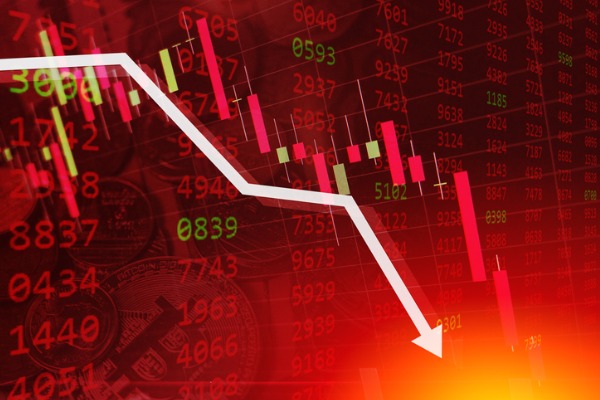One in three funds have posted double-digit losses so far in 2022
13th May 2022 10:33
by Sam Benstead from interactive investor
Investors are selling stocks as interest rates rise and economic growth slows.

Fund investors have suffered a bruising start to the year, with more than one-third of strategies posting double-digit loses and 90% of funds losing money.
The research, from financial data firm FE Analytics, underscores how difficult investment conditions are, as inflation hits 30-year highs in Britain and the Bank of England begins to raise interest rates.
Since the financial crisis, global stocks have marched steadily higher, fuelled by falling interest rates and central bank support for financial assets when economic growth slowed.
- Read about our: Sustainable Funds List | Top Investment Funds | Transferring an Investment Account
However, with inflation rising to more than 7%, central banks are now jacking up rates to cool down economies, sending stocks into reverse as investors weigh up the impact of a higher return from safe government bonds. Markets are also grappling with the fallout from the Russia-Ukraine war.
- Eight star fund managers you can buy on the cheap
- Why it’s important to avoid being overexposed to one fund house
- Baillie Gifford retains crown as active investors’ favourite fund firm
Data from FE Analytics shows that in this environment, just 10.9% of funds in the 5,000-strong Investment Association universe have turned a profit in 2022.
The spilt between negative and positive funds is similar for stock and bond funds, but 95% of mixed asset funds have lost money this year. The top-performing sectors are commodities and Latin America, which have been buoyed by rising raw material prices.
There are some sectors where not a single fund is in profit, including China/Greater China, European Smaller Companies, Sterling Corporate Bond and UK Index Linked Gilts..
Technology has been the second-worst place to be invested, with 97% of funds posting double-digit loses. T. Rowe Price Global Technology Equity is the worst performer after plunging 43.5% while Herald Worldwide Technology is the best of the sector’s loss-making funds, with a fall of 11.7%.
SPDR® MSCI Europe Communication ETF is the exception, making investors around 1%.
- A tactic to ride out the inflation storm using these funds and trusts
- The investment lessons from the 1970s as inflation soars and rates rise
- Tips for recession-proofing a portfolio: where to start?
In the positive return camp, nearly 60% of Latin America funds generated double-digit profits. Schroder ISF Latin American (up 16.8%), Barings Latin America (15%) and BlackRock GF Latin American (14.2%) are the peer group’s best performers.
Close behind is Commodity/Natural Resources, with 57.7% of funds in double-digit territory. The best performers here reflect the surge in the price of energy commodities: iShares S&P 500 Energy Sector UCITS ETF has risen 52.1%, while XXtrackers MSCI USA Energy UCITS ETF is up 41.8% and BlackRock BGF World Energy has made 49.3%.
Meanwhile, 21% of Infrastructure funds have made more than 10% this year, as have 11% of Specialist funds.
UK funds have performed relatively well, with the average UK Equity Income fund down 3.5% and UK All Companies fund down 10%. However, UK Smaller Companies strategies, which own faster growing but more expensive stocks, have dropped 19% on average.
Worst performing fund sectors this year
| Sector | Return (year-to-date %) |
|---|---|
| Technology and Technology Innovations | -22.23 |
| European Smaller Companies | -20.77 |
| UK Smaller Companies | -18.87 |
| China/Greater China | -18.15 |
| North American Smaller Companies TR in GB | -16.38 |
| Financials and Financial Innovation | -15.93 |
| Japanese Smaller Companies | -14.70 |
| Europe Excluding UK | -13.75 |
| Asia Pacific Including Japan | -13.42 |
| UK Index Linked Gilts | -13.29 |
FE Analytics, 11 May 2022
These articles are provided for information purposes only. Occasionally, an opinion about whether to buy or sell a specific investment may be provided by third parties. The content is not intended to be a personal recommendation to buy or sell any financial instrument or product, or to adopt any investment strategy as it is not provided based on an assessment of your investing knowledge and experience, your financial situation or your investment objectives. The value of your investments, and the income derived from them, may go down as well as up. You may not get back all the money that you invest. The investments referred to in this article may not be suitable for all investors, and if in doubt, an investor should seek advice from a qualified investment adviser.
Full performance can be found on the company or index summary page on the interactive investor website. Simply click on the company's or index name highlighted in the article.